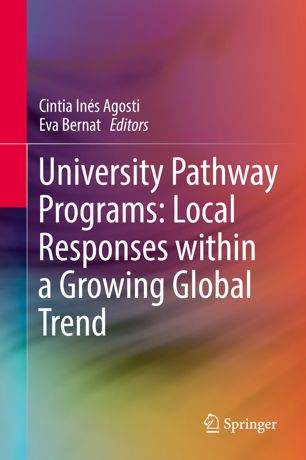

Most ebook files are in PDF format, so you can easily read them using various software such as Foxit Reader or directly on the Google Chrome browser.
Some ebook files are released by publishers in other formats such as .awz, .mobi, .epub, .fb2, etc. You may need to install specific software to read these formats on mobile/PC, such as Calibre.
Please read the tutorial at this link: https://ebookbell.com/faq
We offer FREE conversion to the popular formats you request; however, this may take some time. Therefore, right after payment, please email us, and we will try to provide the service as quickly as possible.
For some exceptional file formats or broken links (if any), please refrain from opening any disputes. Instead, email us first, and we will try to assist within a maximum of 6 hours.
EbookBell Team

0.0
0 reviewsThis volume is the first to compile the insights of experienced and informed education researchers and practitioners involved in the delivery of university pathway programs. These programs have emerged as effective responses to global, national and local students’ needs when transitioning to Higher Education. The book opens with an overview of the main drivers for the development of university pathway programs, and a description of the main characteristics of such programs, as well as of the different types of programs available. It examines topics such as the way in which policy and governance issues at the institutional, state, and federal level affect university pathway programs’ financial models, compliance and quality assurance mechanisms as well as program provision. It also looks at how to address issues related to 'non-traditional' background students such as those from lower socioeconomic background, students for whom English is an additional language (EAL), indigenous students, mature age students and humanitarian entrants.
The volume showcases thirteen university pathway programs offered in Australia, Canada, New Zealand, South Africa, Qatar, and the United Kingdom. These examples provide valuable insights that will help guide future practice in the field as the programs described effectively foster and support the development of students’ academic literacies, study skills and awareness of the socio-cultural norms that are necessary to participate successfully in higher education settings. In reporting the strategies to overcome challenges in the areas of curriculum development and implementation, of equity, inclusion and participation, of cross-sector collaboration and of student welfare, the volume promotes reflection on these issues and, therefore, better equips those education practitioners embarking on the university pathway program journey.